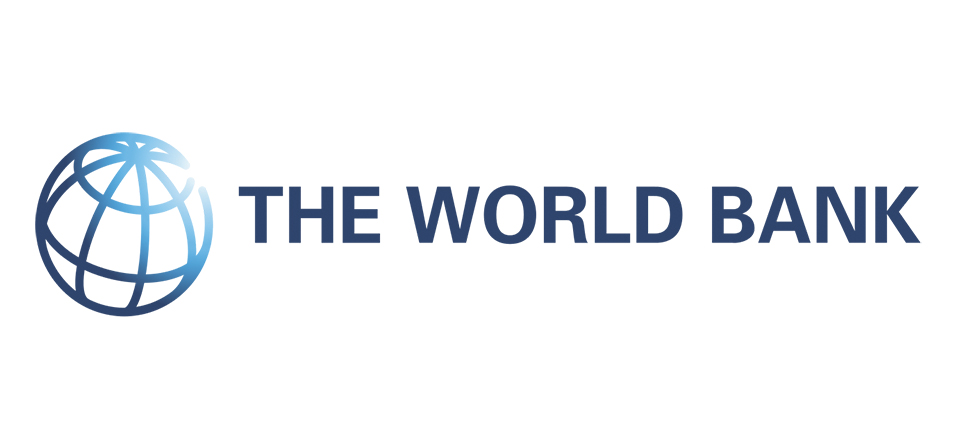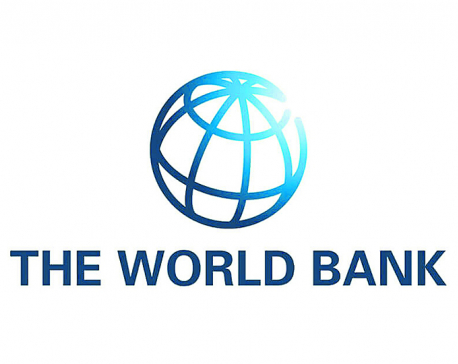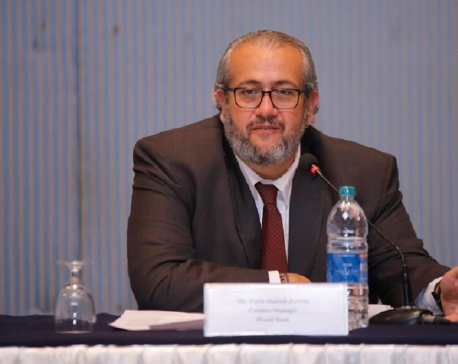
OR
COVID-19 threatens progress in human capital development, warns new World Bank report
Published On: September 17, 2020 01:25 PM NPT By: Republica | @RepublicaNepal

KATHMANDU, Sept 17: The COVID-19 pandemic threatens hard-won gains in health and education over the past decade, especially in the poorest countries, a new World Bank Group analysis has found.
Investment in human capital — the knowledge, skills, and health that people accumulate over their lives — is key to unlocking a child’s potential and to improving economic growth in every country.
The World Bank Group’s 2020 Human Capital Index shows that pre-pandemic, most countries have made steady progress in building human capital of children, with the biggest strides made in low-income countries.
In Nepal, a child born today will be 50 percent as productive when she grows up as she would be if she enjoyed complete education and full health. This is higher than the average for the South Asia region and higher than the average for countries with similar levels of income. This is largely due to an improvement in school enrollment and institutionalization of the measurement of student learning.
“Investment in human capital is just as important as investment in infrastructure, if not more, and brings returns in the form of a healthier and more productive workforce in the long run,” stated Faris Hadad-Zervos, World Bank Country Director for Maldives, Nepal and Sri Lanka. “There is a need for an accelerated push to focus on investing in human capital in the recovery and rebuilding phases after the pandemic. This requires close collaborations among all three levels of the government in order to bring about large and sustainable changes.”
In Nepal, it is essential to invest more in the early years, with a focus on those children who have been left behind. This includes safeguarding access to nutritious, safe and affordable diets and providing opportunities for learning and stimulation especially for the poorest and most-affected households. Given the current high cost of medical care, resources can be refocused toward ensuring universal access to quality essential primary, emergency and referral health services.
The 2020 Human Capital Index includes health and education data up to March 2020 for 174 countries covering 98 percent of the world’s population, providing a pre-pandemic baseline on the health and education status of children.
You May Like This

World Bank provides Nepal with 982 units of 10-liter oxygen concentrators for treatment of COVID-19 patients
KATHMANDU, June 19: The World Bank (WB) has provided Nepal with 982 units of 10-liter oxygen concentrators to fight against the... Read More...

“Resilient recovery requires investing in new growth opportunities that build overall resilience to future shocks”
In an email interview with Republica, Faris Hadad-Zervos, World Bank Country Director for the Maldives, Nepal and Sri Lanka, explains... Read More...

Nepal's economic growth expected to fall to range between 1.5 and 2.8 percent this year : World Bank
KATHMANDU, April 12: Nepal's economic growth is expected to fall to a range between 1.5 and 2.8 percent in the... Read More...

Just In
- World Malaria Day: Foreign returnees more susceptible to the vector-borne disease
- MoEST seeks EC’s help in identifying teachers linked to political parties
- 70 community and national forests affected by fire in Parbat till Wednesday
- NEPSE loses 3.24 points, while daily turnover inclines to Rs 2.36 billion
- Pak Embassy awards scholarships to 180 Nepali students
- President Paudel approves mobilization of army personnel for by-elections security
- Bhajang and Ilam by-elections: 69 polling stations classified as ‘highly sensitive’
- Karnali CM Kandel secures vote of confidence


















Leave A Comment